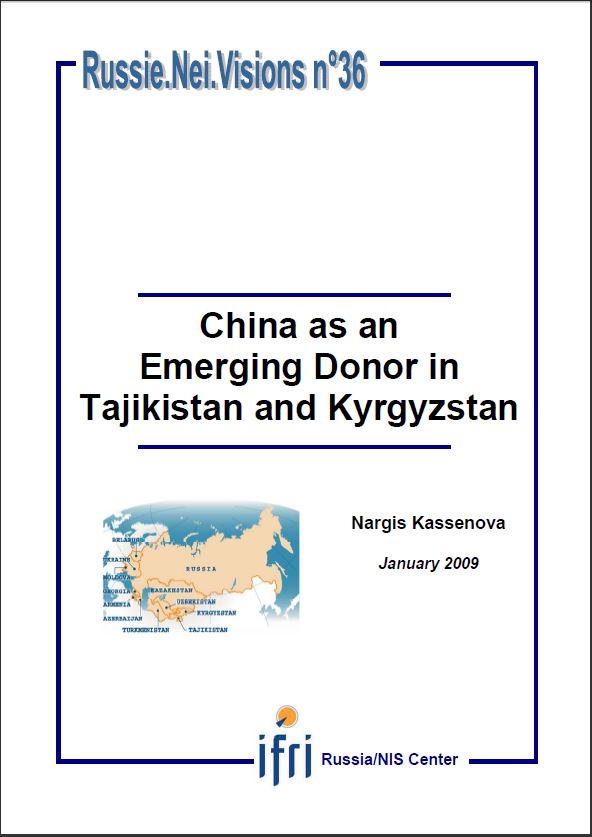China as an Emerging Donor in Tajikistan and Kyrgyzstan

China has become an important provider of development assistance (through grants and soft loans) to Central Asian states. The focus of this study is the two states of the region most in need of aid: Tajikistan and Kyrgyzstan. The paper discusses the characteristics of Chinese assistance, comparing its activities and policies in Central Asia with those in Africa, and draws conclusions about the implications of such growing engagement. Given the European Union's declared interest in the region, notably through its Strategy for Central Asia adopted in 2007, the opportunity is taken to suggest ways in which China's growing development role should be understood in Brussels.
The report is based on research trips to Tajikistan and Kyrgyzstan in June-August 2008 supported by a grant from the Norwegian Ministry of Foreign Affairs. It is part of the Regional Competence-Building for Think Tanks project in the South Caucasus and Central Asia organized by the Norwegian Institute of International Affairs.
Download the full analysis
This page contains only a summary of our work. If you would like to have access to all the information from our research on the subject, you can download the full version in PDF format.
China as an Emerging Donor in Tajikistan and Kyrgyzstan
Related centers and programs
Discover our other research centers and programsFind out more
Discover all our analysesThe Caspian Sea as an Emerging Energy Hub : Potentials and Limitations
This report analyzes the prospects of the Caspian Sea region — and its key actors except for Russia and Iran — becoming an important energy hub serving the needs of the European Union (EU).
The European Union's Strategic Test in Georgia
The political crisis brewing in Georgia is of an existential nature for the country. What is at stake is Georgia's future as a democratic and sovereign European nation (EU).
Commanders of Putin's Long War: Purged, Reshuffled and Disgruntled
The trend of reshuffling the Russian top military command in the course of a fast-evolving and far from successful war has progressed unevenly both across the Armed Forces’ structures and in time. The rationale for and timing of the abrupt cadre decisions made by Commander-in-Chief Putin often defy logical explanation, and the rare official clarifications are no more informative than the usual information blackout.
Russian Military Manpower After Two and a Half Years of War in Ukraine
In addition to a military victory in Ukraine, the Russian leadership is planning to build up sizable troop formations for a possible conflict with NATO in the Baltic region and the Kola Peninsula. In particular, current plans aim for the military manpower to grow by about 350,000, reaching a total of 1.5 million soldiers and commanders. In the context of the current conflict in Ukraine, this cannot be accomplished without a new wave of mass mobilization.









